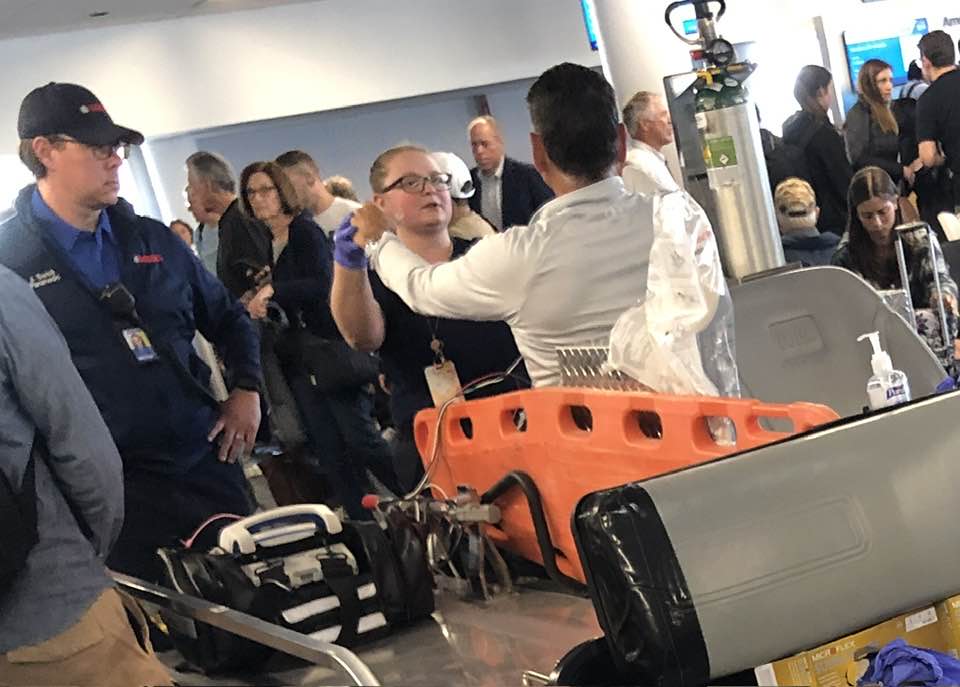
At the gate in Charlotte
It’s encouraging to see people at their best. It’s like getting a glimpse of God’s love.
Halfway through a Tuesday morning flight to Charlotte, where most bishops in The Episcopal Church are gathering to spend Wednesday with the five from whom the Holy Spirit will select our next presiding bishop this summer, I looked up from a movie to see a man lying on his back in the aisle ten feet from my seat. A cloud of Samaritans had already gathered and knelt at his head and feet. They waved and shouted at the flight attendants finishing the beverage service at the back of the plane. The man appeared unconscious. Passengers in the adjoining seats called to him and reached down to touch his forehead.
For the second time in a month, I was within the whirlwind of deadly crisis with almost nothing to do but talk to God. On Holy Wednesday, an armed man had a standoff with sheriff’s deputies on the street in front of our house. It ended peacefully. Standing 15 feet from the man, I’ve never prayed harder for safety and wholeness, until today.
When the sick man, in his fifties and fit, stirred but then failed at a couple of attempts at standing and sitting up, the flight attendants put out the call for medical personnel. Two nurses were there in a minute, as were plastic gloves, oxygen, and an IV, which one nurse attached to his arm while the other held the bag aloft. The patient looked worse for a few minutes. His legs seemed to twitch.
Soon a woman seated near to the man also felt unwell. Flight attendants brought her orange juice and ice water. A couple and I were in the bulkhead seats on the left. One of my seat mates offered her backpack to support his legs. Across the way a man gave his sweater for a cushion. All I had to offer was my seat in the event the man felt well enough to sit up and wanted to put his legs out.
Every five minutes a flight attendant used the phone in front of our seats to call the cockpit, where the pilot was no doubt discerning whether she should find an airport and land and get her patients to a hospital. Among my prayers was that we would do just that. Since the man may have had a stroke or heart attack, it seemed the prudent thing. Charles Dickens was cynical about my impulse. “It is always the person not in the predicament who knows what ought to have been done in it,” he writes, “and would unquestionably have done it too.”
But it was straight on to Charlotte, and perhaps those in the predicament knew best. After 25 minutes, the man roused himself. The Samaritans kept their hands lightly on his shoulders. The nurses took his blood pressure and checked his pulse again. He drank some water and finally stood, to applause, and returned to his seat. The woman sitting nearby felt better, too.
It is good to know planes are stocked with IV nutrient and medicinal oxygen equipment. The nurses and flight attendants stood in the aisle and carefully sealed up the needles, IV bag and tube, and gauze. After we landed, we sat until paramedics collected both patients. I know I’m not the only passenger who thanked the imperturbable American Airlines flight attendants as we left. It is good to see people worried about a stranger and cooperating with other strangers to help. It’s what God made us to do, and if we have to, we can do it all the time.
